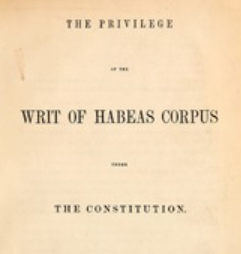 Discovery problems led to a contempt finding and an order imposing jail time in In re Duncan, No. 05-19-01572-CV (May 14, 2020) (mem. op.) The Fifth Court granted habeas relief, noting this basic due-process requirement in this area:
Discovery problems led to a contempt finding and an order imposing jail time in In re Duncan, No. 05-19-01572-CV (May 14, 2020) (mem. op.) The Fifth Court granted habeas relief, noting this basic due-process requirement in this area:
“Contempt may be. . .divided into civil or coercive contempt, which involves confinement pending obedience to the trial court’s order, and criminal or punitive contempt, which results in a punishment for past transgressions. In cases where the trial court seeks to impose criminal or punitive constructive contempt, due process requires a contemnor to either be present or affirmatively waive his or her presence for the contempt hearing.. When the contemnor fails to appear for the contempt hearing, the trial court must issue a capias or writ of attachment to secure the contemnor’s presence.”
(emphasis added, citations omitted, applying, inter alia, In re Reece, 341 S.W.3d 360 (Tex. 2011), and Ex parte Alloju, 907 S.W.2d 486 (Tex. 1995)).
